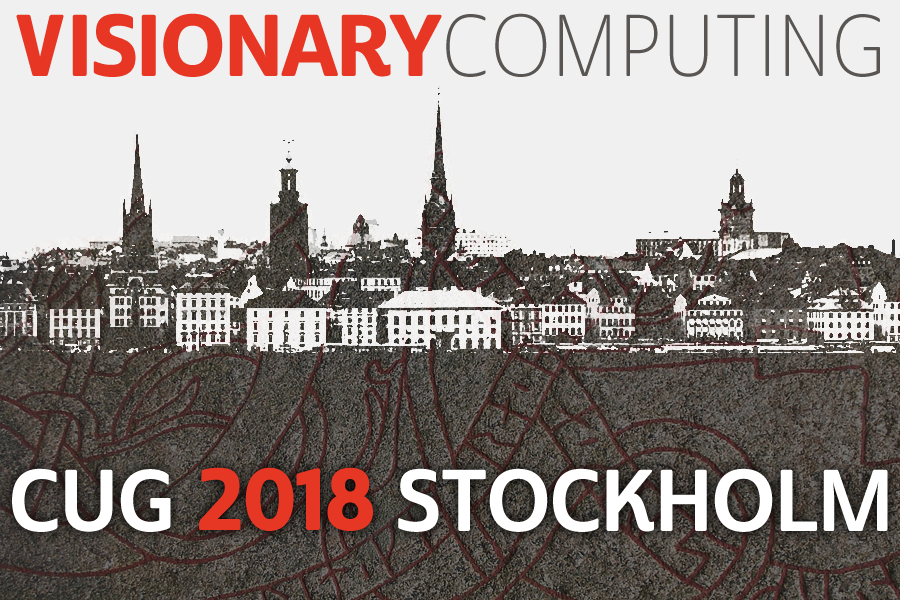The PDC Center for High Performance Computing at the KTH Royal Institute of Technology invites you to join us for CUG 2018 in Stockholm, Sweden from 20-24 May 2018.
“Visionary Computing” is the theme of CUG 2018. The many challenges in our field need visionary approaches to push our boundaries and our infrastructure enables visionary research. Sweden and the Stockholm region is the home of great and visionary minds such as Carl Linnaeus, Anders Celsius and Ander Jonas Ångström, to name a few. Stockholm is also the home town of Alfred Nobel, whose legacy of Nobel prizes gather the brightest minds every year in Stockholm. Leading IT businesses like Ericsson and Spotify make Stockholm a hotspot for the IT industry and with its focus on life sciences and engineering, which includes companies like Scania and Saab nearby, Stockholm is also a prime place for industrial HPC. In this exciting environment, CUG 2018 will explore new frontiers in HPC but also increasingly focus on data, analytics and the convergence of HPC and Big Data.
The PDC Center for High Performance Computing, which is hosting CUG 2018, is a prime Swedish HPC provider. PDC was established in 1990 and has a long tradition of providing the largest Swedish supercomputing resources for research. PDC’s current flagship system is a 2 petaflops Cray XC40, Beskow, which is the largest academic system in the Nordic countries. As a national HPC centre, PDC supports a wide variety of Swedish and European researchers and also engages in industrial collaborations.
We look forward to welcoming you to Stockholm, where you can enjoy long days of Nordic sunlight, a vibrant city with a medieval centre and many cultural highlights, like Fotografiska (one of the world’s largest contemporary photography museums), the Royal Castle, the Vasa Museum, and, for those who still remember them, the ABBA museum. Perhaps you would also like to take a ferry trip and explore the Stockholm archipelago which has over 30,000 islands.
Prof. Erwin Laure
Director PDC – Center for High Performance Computing
KTH



